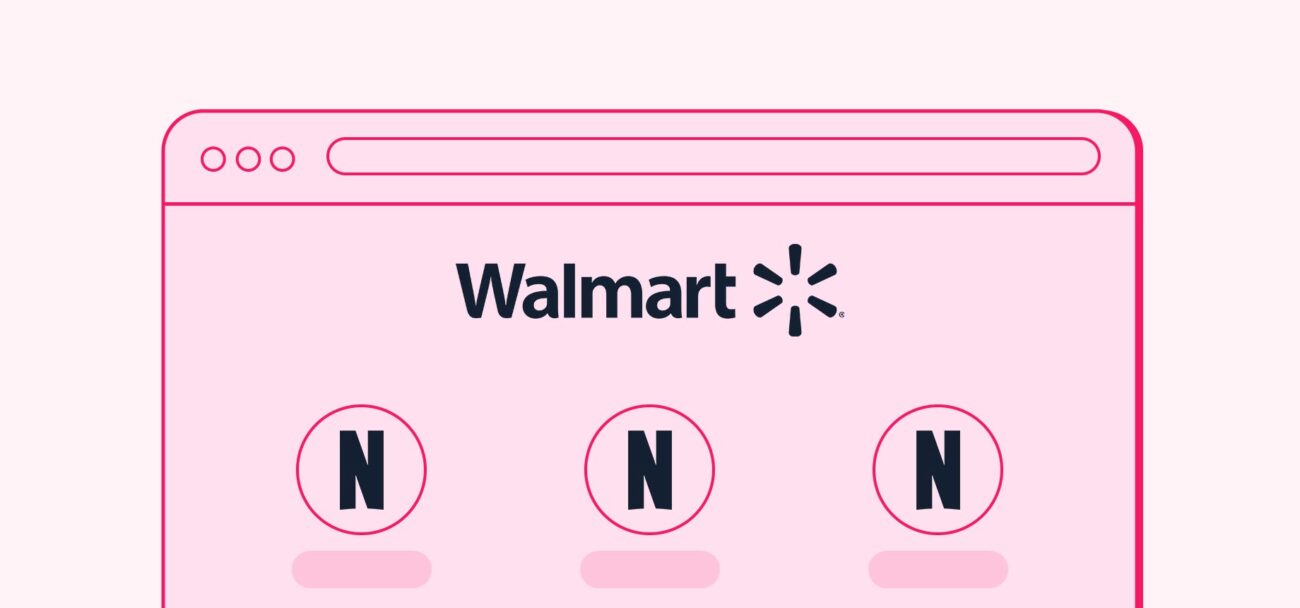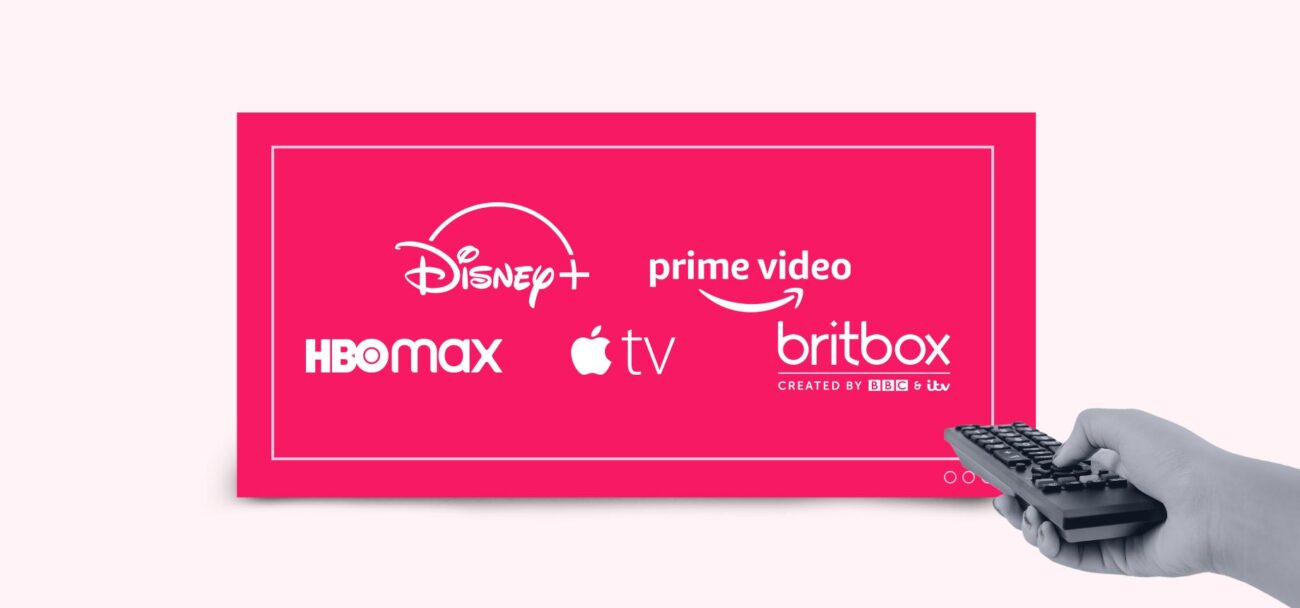
Recently, Netflix and Walmart US announced a partnership towards opening an online store of show-inspired branded merchandise products. Entitled Netflix Hub and available at walmart.com/netflix, the initiative promises to be “the biggest online retail destination for Netflix consumer products in the US.” With two big names involved in this initiative, one thing becomes clear: the new era of merchandise stores is now in full swing, which calls for an in-depth analysis. Check it out below.
The Netflix Hub
Arriving just in time for the holiday shopping season, the Walmart-exclusive website will provide items inspired by well-known Netflix shows such as Stranger Things, Squid Game and The Witcher, which will be created by various manufacturers and suppliers (e.g. Funko). Worth mentioning is that the partnership allows orders to be fully integrated into Walmart’s fulfillment operations, with pick-up in-store across the national retailer’s network or home delivery options available. It’ll be like shopping for any other item in the Walmart store.
There is also a vision to scale the project by shoppers voting on new products, making the shopping journey more interactive. All in all, this hub is meant to enhance a Netflix fan’s experience by bringing tangible items into their lives, something that is common and successful for the creations of traditional production studios, but not for those of streaming services. Netflix is determined to change the game.

A multi-channel ambition
While this partnership marks Netflix’s first retailer-specific hub, it’s not the first time the streaming giant offers merchandise products. Previously, it licensed some of its shows and characters through one-off partnerships with Target, H&M and Sephora.
More recently, it also created its own ecommerce website, the Netflix Shop, with more or less the same merchandise vision tied to popular Netflix shows. But the items on the direct-to-consumer (DTC) online shop are more expensive and they feature more limited-edition collections than those on the Netflix Hub.
The odd thing is, however, that Netflix Shop is not widely promoted — we have yet to see a “Buy Merch Online” Slideshow on the Netflix interface. Likewise, there are no plans of developing a brick-and-mortar presence to go hand-in-hand with the online store. These details pinpoint to an accelerated yet cautious approach to merch: maybe Netflix is afraid of completely mixing streaming with retail or maybe it is still testing things out.
Regardless, it’s easy to see how the Walmart collaboration allows Netflix to gain its footing in the merch industry: it can tap into Walmart’s brand equity and huge online customer pool, therefore obtaining greater visibility for its merchandise.
Why retail?
An important question still needs to be addressed: why does Netflix need to engage in merchandise retail? After all, it is the largest streaming platform according to Statista.

One aspect to consider is that Netflix does not have any ads or commercials on its platform. It profits mainly from the monthly fees paid by its more than 200 million global subscribers.
While that covers a huge chunk of the running costs, raising the production bar with shows like The Crown (i.e. the most expensive show ever made) has its pricey downfalls and Netflix has already received backlash for continuing to raise its fees. Add that to the fact that the video streaming industry is approaching its peak and competition is as high as ever with a new platform being launched every other month, Netflix is right to entertain a new revenue stream.
A second consideration to keep in mind is that of supply and demand. Demand for merchandise certainly exists, with fan-made products being available everywhere goods are sold (e.g. Etsy, Instagram, Merch stores, etc.) without Netflix’s approval.
Hence, there is clearly a wasted opportunity to exploit these shows further. According to Licensing International, in 2019 sales of licensed products tied to shows, films and characters amounted to $128 billion USD globally. It sounds like a gold mine to be explored, right?
Last but not least, the streamer is certainly not the first one to delve into consumer products. One might even argue it is actually catching up to the trend, albeit in great fashion. As we’ll realize in our next section, the market has certainly been taking notes.
What are Netflix’s competitors doing?

Compared to Netflix, Disney is well-versed in DTC retail, with lots of physical stores selling Disney products since 1920 and billions of dollars in yearly revenue. Nowadays, it also benefits from a huge brick-and-mortar partnership with Target. It’s also already taking advantage of Disney+ hit-shows like The Mandalorian, but the attempt to capitalize on its streaming service is rather shy, with the bulk of the catalog being reserved for famous animations released in cinemas.
From the digital commerce perspective, earlier this year, Disney announced that it will devote much more attention to its ecommerce business, significantly reducing its brick-and-mortar footprint. Still, no omnichannel approach. Netflix’s move will probably force Disney’s hand soon to accelerate merchandise options for Disney+ most likely online. Alternatively, it could upgrade its existing Target collaboration to a ‘phygital’ one – if Netflix and Walmart can do it, why couldn’t Disney and Target?
Selling digitally is a good first step, though. HBO started doing exactly that, albeit a tad too late, with an official merchandise store for some of its record-breaking series like Game of Thrones, The Sopranos and Succession. BBC also has an online shop, but it is the official digital stores of shows like Doctor Who and Peaky Blinders that steal the spotlight. Once again, decentralized wins over centralized, so Disney and HBO are perhaps the only real competitors for Netflix when it comes strictly to merchandise hubs.
Amazon, for instance, is ironically selling thousands of unofficial merch items related to its Amazon Studios shows, but they all come via the marketplace, through third-party sellers. There is no official, centralized store and we therefore all lose the opportunity of buying the wonderful dresses of Midge Maisel. This might change, however, with the upcoming release of the Lord of the Rings series, which Amazon would be wise to exploit given the phenomenal success it previously had in the merch department.
Apple does not appear to deep its toes into the waters of merch anytime soon. Its partners, though, are: Warner Bros. recently set up a Ted Lasso online store. Yet wouldn’t it be bold to see merch in a tucked-away corner of the sleek Apple stores? Or in a special category on the Apple Store app, with pick-up in-store options? One can only dream.
To be continued
Streaming companies are battling a war for the crown of streaming market share, but soon enough there might be another fight worth prioritizing: retail. It’s only a matter of time until robust, centralized and omnichannel initiatives the likes of Netflix’s and Disney’s will gain even greater relevance.













